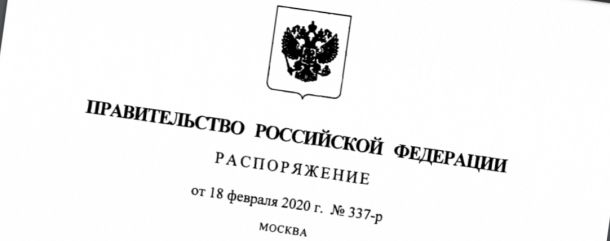Russia once again violates its own fish deal with Morocco

The text of the Russia-Morocco fish accord reveals that Russian vessels are supposed to fish in the Moroccan Exclusive Economic Zone – that should preclude Western Saharan waters. WSRW has made an English translation of the Russian-Moroccan agreement.
Published 26 April 2013
The first article of the Russia-Morocco fisheries agreement states that it will apply to the “Atlantic part of the Exclusive Economic Zone of the Kingdom of Morocco”. The first appendix further defines the fishing areas as situated south of the 28°00’ parallel of north. The text makes no reference to any southern limit to the fishing zones. The text does stipulate that the exact coordinates of the areas where fishing is allowed are specified in the fishing licenses.
This is evident from a translation done by WSRW of the agreement between the two countries. Read the original Russian version here, and WSRW's new unofficial English translation.
In return for access, the Russian government pays an annual financial compensation of $ 5 million. Shipowners are to pay for their fishing license, as well as an annual fee for any commercial opportunities.
However, ever since the four year agreement was inked, WSRW has observed Russian vessels fishing in the waters of Western Sahara – which are not part of Morocco’s Exclusive Economic Zone. The Moroccan government has never even claimed the EEZ of the Western Saharan waters. It would not even be able to do so under the UN Convention on the Law of the Sea, of which it became a member state in 2007.
The Russian government is consequently funding the Moroccan treasury for access to the waters adjacent to occupied Western Sahara, which do not fall under Morocco's sovereignty. The right to determine the future status of both the land and waters of Western Sahara lies with the Saharawi people, whose most fundamental rights are continuously trampled on by Morocco, backed by international commercial interests. Only last week, Morocco's ferocious lobbying could convince some countries on the Security Council, including Russia, to oppose the USA's proposal to have the UN monitor human rights in Western Sahara.
So far, WSRW has discovered 10 Russians trawlers in the waters of the occupied territory – the exact number of vessels allowed to fish under the agreement. A total catch quota of 100.000 tonnes of small pelagic species has been accorded for the first year. The text breaks the quota down to the following percentages: 30% of the catch should be sardine and sardinella, 65% - mackerel, horse mackerel and anchovy, and 5% is given by-catch.
The Russian vessels will take at least 16 Moroccan fishermen on board, up from 14 under the previous deal. In addition, the vessels are obliged to have a Moroccan scientific observer on board, checking compliance with the terms of the agreement. A permanent positioning satellite system follows the vessels’ every move to make sure they only fish where Morocco allows them to; in occupied waters.
But the agreement doesn’t only cover fisheries. It also provides for cooperation in the fields of scientific research, engineering and technology, as well as in areas as shipbuilding and fish processing. At the request of Morocco, Russia will facilitate the supply of small pelagic fish species caught by the Russian vessels to Moroccan fish processing enterprises. According to Russian media, Rabat is interested in attracting Russian investment to the fishing industry.
Both countries will also cooperate with regard to aquaculture, for which the Russians will supply the know-how and methods. Russia also agreed to provide scholarships for "Moroccan citizens" to train them in marine fisheries.
The previous fisheries agreement between Morocco and Russia ended in June 2012. The current agreement signed on 13 February 2013, at the Halieutis conference in Agadir, Morocco. Russian vessels had been fishing in the Moroccan and Saharawi waters since December 2012, on the basis of a memorandum for an agreement signed that time.
News
Russia-Morocco controversial fisheries deal on the horizon
Russian and Moroccan representatives recently met to further discuss a new fisheries agreement covering the waters offshore occupied Western Sahara, but a new deal seems still pending.
27 May 2020
Russia signs new fisheries deal for occupied Western Sahara
The Russian and Moroccan governments on 15 March 2016 announced the renewing of their fisheries agreement, allowing Russian trawlers fish in occupied Western Sahara. WSRW has translated the agreement from Russian to English.
13 June 2016
Russian plunder vessel pollutes Canary-Western Sahara strait
A Russian vessel that has been fishing illegally in occupied Western Sahara, sank a forthnight ago. The vessel is still leaking fuel oil in the area between the Canary Islands and Western Sahara.
28 April 2015
Russian fishermen fail in geography yet again
A Russian trawler that has been fishing offshore occupied Western Sahara much of last year, has now been seized by the Senegalese authorities for illegal fishing.
09 January 2014


